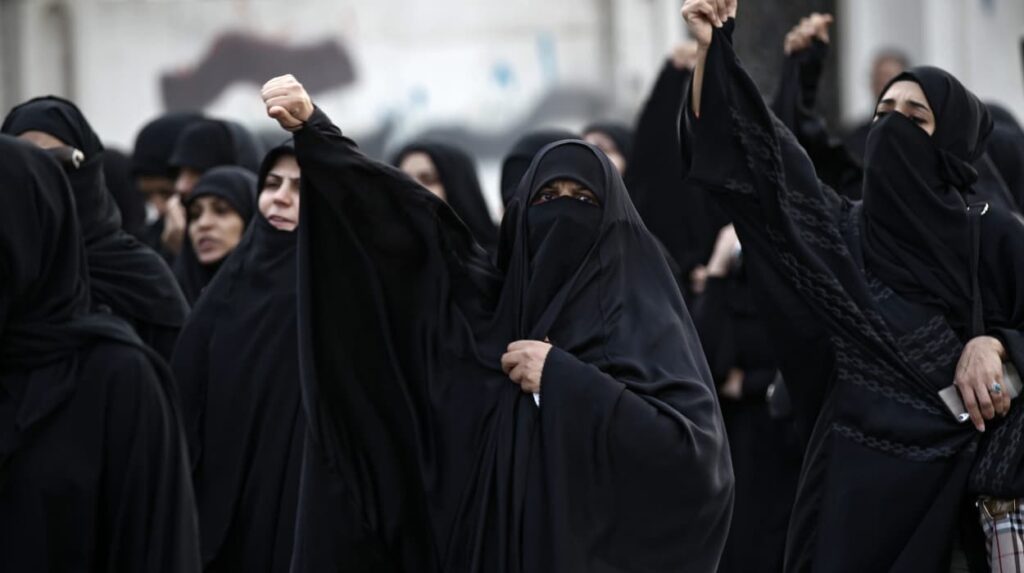The FIFA World Cup is a global symbol of unity, diversity, and inclusivity. However, FIFA’s decision to award the 2034 World Cup to Saudi Arabia has sparked criticism due to the country’s deep-rooted gender inequality. Despite recent reforms, women still face severe legal and social restrictions, particularly in sports. With limited freedoms, barriers for female athletes, and restrictions on female spectators, Saudi Arabia cannot be said to uphold FIFA’s commitment to equality.
Limits of women’s freedom in Saudi Arabia
Saudi Arabia has been probably one of the most repressive countries against women in history and is arguably today the least gender-equal country. Although the government has achieved certain reforms, women remain very restricted not only in legal but also in their social lives:
- Guardianship System: Only recently, women needed permission from a male guardian to do such basic things as travel abroad, get married, or seek healthcare.
- Less Political Representation: Women attained the right to vote only in 2015, and currently, their political representation is at its lowest point.
- Dress Code: Women have to follow very conservative dress codes. They have to cover their hair and bodies while appearing in public.
It cannot, therefore, claim to uphold equity as enunciated by the FIFA. Rather, the nation would go in direct opposition against the problems it has with sports and gender rights if it gets to host the world’s ultimate sporting event at such a site. As of 2021, Saudi Arabia recorded a gender ratio of 137 males per 100 females; in other words, there are not many women 4.
Barriers Facing Women in Sport in Saudi Arabia
For a long time, women have been barred from engaging in sports activities in Saudi Arabia because of the cultural and religious beliefs dominating the nation. Even though this scenario has recently experienced some improvement, gender-based discrimination is indeed pretty severe. Women’s leagues are underdeveloped and receive much less financial support from the government compared to men’s leagues.
Until 2018, women were not allowed in stadiums, let alone to play sports. Saudi Arabia sent its athletes to the Olympic games for the first time in 2012, and this is well decades behind the other countries.
It is the point where all sports find an umbilical bond around the globe, all genders are celebrated. However, it is contradictory to the aim set by FIFA to provide equal opportunities to everybody when such an event is held in a country where women’s sporting events are so underdeveloped and undervalued.
Discrimination of Genders in Football
Football is the most popular sport in the world. But women’s football is of utmost importance for FIFA to be developed and grown. It has a miserable record in promoting women’s football.
- Saudi Arabia Women’s National Team Was Just Established in 2021, decades behind all countries.
- Unlike all other hosts, Saudi Arabia introduced a professional Women’s League just in 2020. Even that was formed with less finance and encouragement.
- The women’s national team of the country does not have much exposure in the World. Because of no investment, FIFA ranks them lower and even no qualification to big tournaments ever.
The gross enrollment rate of females in tertiary education was 71.2% in 2021, while that for males was 71.6%. A country that is not committed to gender balance in football cannot be entrusted with the sport’s biggest tournament. The FIFA World Cup in one’s country should necessitate and support the idea of a woman’s football that Saudi is not in support of.
Challenges Toward Female Viewers and Visitors
Millions of women are attracted to the FIFA World Cup, and such fans worldwide are restricted in Saudi Arabia, with such restrictions potentially demanding an antagonistic atmosphere for international visitors: extreme gender segregation characterized in most public spaces in Saudi Arabia, which may impact stadium seating and other fan interactions.
- Detention Risks for Violating Dress Code Laws: Women who fail to follow the Saudi Arabian dress code laws, which cover the arm and legs, risk being detained.
- Limited Social Privileges: Saudi women have limited social privileges, such as beer consumption which is barred because alcohol is prohibited, and they are also restricted from attending mixed-gender functions.
FIFA’s Paradox: Gender Equality vs. Saudi Arabia
FIFA has always been touting gender equality in football, having started initiatives such as:
“No Discrimination” Policy: FIFA has pledged to advance gender equality and diversity in every aspect of the game.
The participation of teams increased, as did investment in the women’s version of football so that participation may be made universally. It aimed to encourage greater women leadership positions in football; FIFA advocated increasing the percentage of women involved in the decision-making process of administration.
FIFA is the same organization that, in awarding the 2034 FIFA World Cup to Saudi Arabia, betrays its values and promotes a host country that is a champion of all the wrong values for women and has one of the worst gender equality records. The proportion of female graduates from STEM programs in tertiary education was about 36.8% in 2018, which has changed little in recent years
Conclusion
FIFA is a global competition and therefore should angle towards inclusivity, diversity, and equal opportunities. Averting the right to host the 2034 World Cup to Saudi Arabia, a country with such a high rate of gender-based inequality, is a wrong statement of the value that FIFA prides itself on.
The world cannot host its prized sporting event exclusively in a place where women can’t be and female athletes never get a glimpse of encouragement since women’s rights are so seriously restricted in this country.

